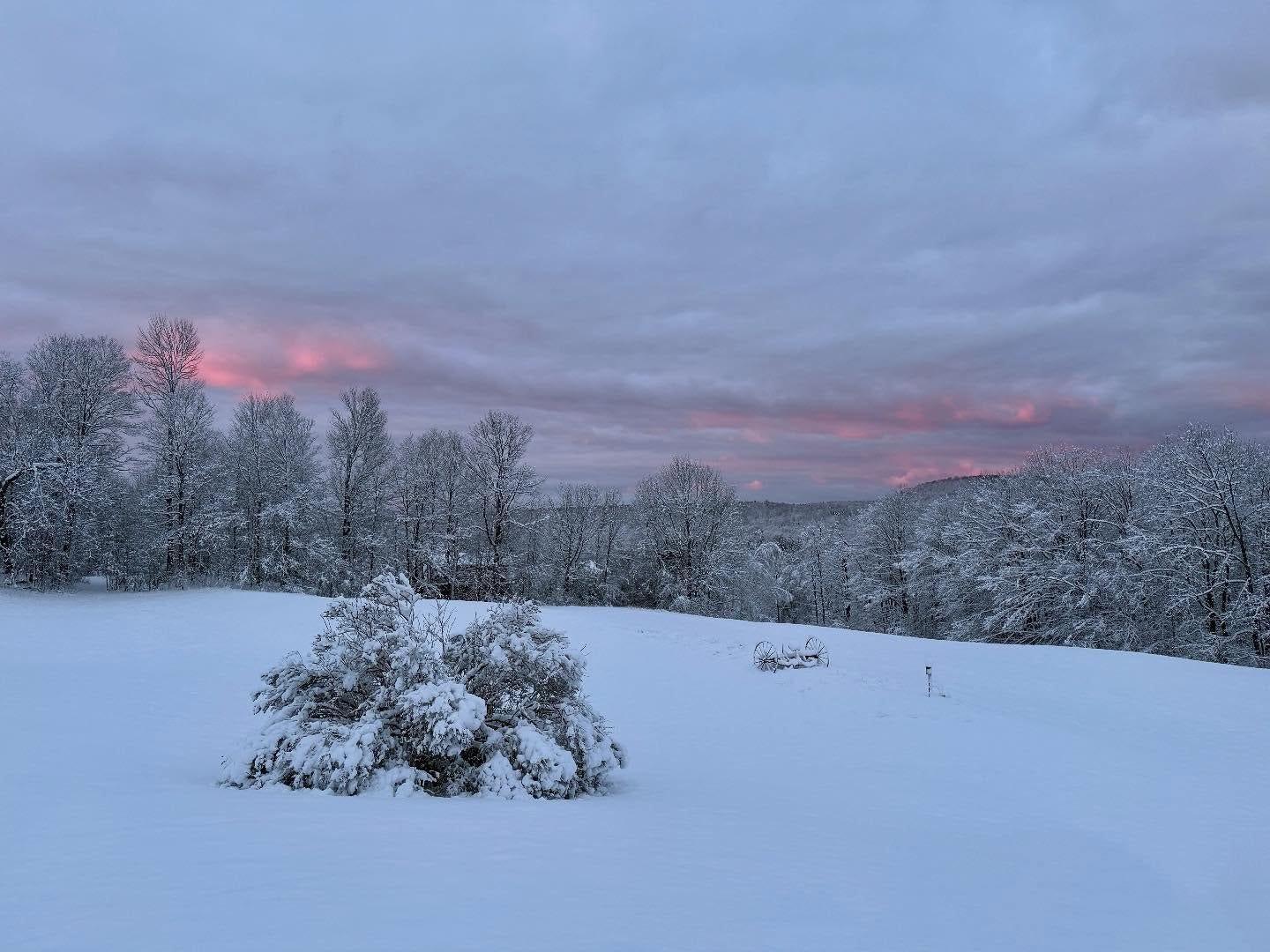The Redemptive Snow
Obfuscation, challenge, renewal
The first heavy snow arrived on Thanksgiving Day, carrying with it a redemptive force that is all too often overlooked. Snow cloaks the landscape with a forgiving obfuscation, softening the edges of our world and granting it a long, good reprieve from November’s harsh scrutiny. Projects left unfinished and the accompanying shame becoming mercifully hidden. Rooftops, which only days before seemed weathered and rusting with neglect, now stand pristine in their snowy finery. Trees stripped bare by the dire winds of grim November are dressed again, their stark, skeletal branches transformed into something soft, inviting, safe. In these acts of concealment, snow redeems our surroundings, offering an absolution for both nature’s imperfections and our own. This is not an act of cleansing but one of mercy, a seasonal truce that allows us to pause and see our world not as it is, but as it could be: softened, renewed, whole.
The redemptive quality of snow extends beyond the physical landscape, reaching into the cobwebbed corners of our own lives. Snow offers a shield against the glare of our failings, a shroud for the unfinished, the forgotten, the flawed. A yard littered with evidence of procrastination—a rake left in the grass, a pile of leaves awaiting a better day, a trio of shingles ripped off by the wind—disappears under its fine blanket. The raggedy garden, whose withered stalks and frostbitten remains hinted at a summer’s work abandoned in favor of another day down at the swimming hole, vanishes, leaving behind a clear slate for dreams of spring to take root. There is grace in this obfuscation, a gentle reminder that not everything must be perfect or complete. Snow levels the field, making no distinction between the carefully tended and the carelessly neglected. It hides the rust and wear of our tools, the splintering boards of the shed, and evens out the fence posts that weren’t all quite the same height. In doing so, it grants us permission to step back and let the unfinished remain unfinished, if only for a while. This is a quiet kind of redemption, one rooted not in the correction of our faults but in the forgiveness of them, allowing us to embrace what remains undone without shame.
Yet snow does not merely excuse our failings; it also calls us to action.
Keep reading with a 7-day free trial
Subscribe to Echoes from an Old Hollow Tree to keep reading this post and get 7 days of free access to the full post archives.


